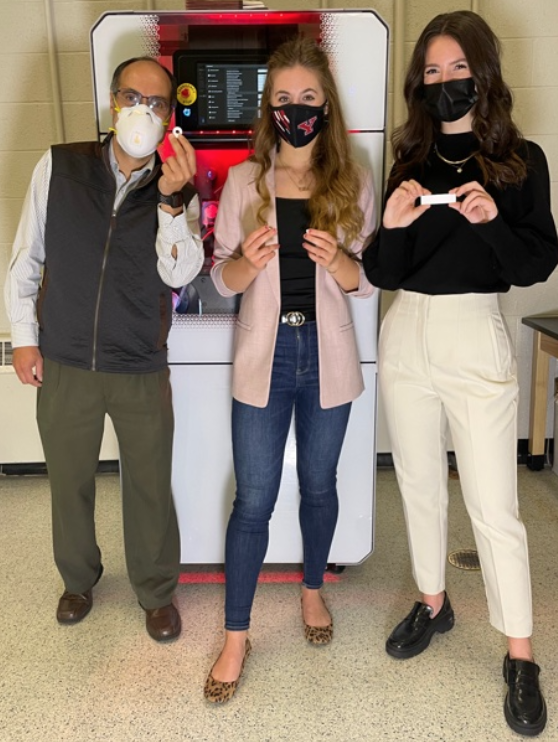Grant advances professor, student research

NASA’s Marshall Space Flight Center has awarded to Youngstown State University’s Chemical Engineering program a grant to advance research aimed at creating 3D-printed high-temperature sensors.
The research led by Pedro Cortes, YSU associate professor of Materials Engineering, focuses on ceramic materials that can be used in extremely high temperature conditions. The study, in collaboration with NASA’s Goddard and Marshall Space Flight Centers, uses a new digital light processing printer funded by the Air Force.
Cortes said current temperature sensors are bulky and require special accommodation and design, whereas 3D-printed sensors are not separate but actually part of the whole item and, since they are embedded, do not disrupt the configuration of the manufactured part. Embedded 3D-printed sensors will have the capacity to be placed throughout the assembly, giving the ability to more fully monitor the structure, Cortes said.
In conjunction with MIT Lincoln Laboratory, YSU students Eleonor Rogenski, Victoria Adams and Robert Zublena are integrating metals that can withstand high temperatures, such as Tungsten alloys, into the printed ceramic structures to develop the sensing elements. Cortes said the team’s efforts will result in customized temperature sensors capable of being integrated in aerospace engines, airplane turbines and chemical reactors.
YSU, the University of Texas El Paso and MITLL have just been invited to participate on a “Resilient and Survivable Hybrid Electronics” book effort led by the Air Force Research Lab (Resilient Hybrid Additive Development Laboratory) at Eglin Air Force Base in Florida.
